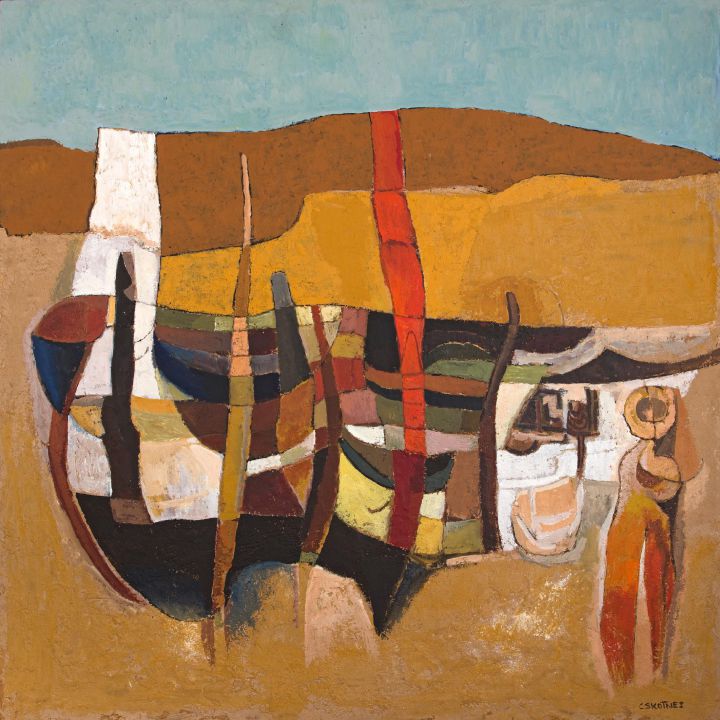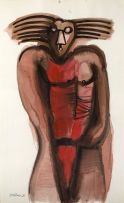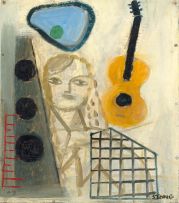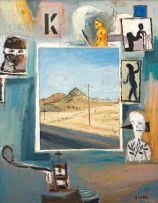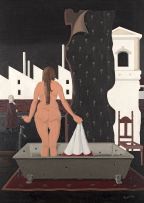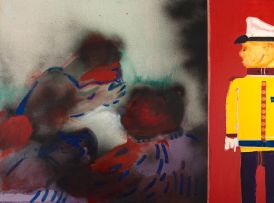Important South African & International Art, Decorative Arts & Jewellery
Live Auction, 10 October 2016
Important South African & International Art
Incl. Buyer's Premium & VAT
About this Item
signed
Notes
Cecil Skotnes was trained as a painter at the University of the Witwatersrand and after graduating in 1951 staked his professional ambition on this medium. In 1955 he met Egon Guenther, a German-born goldsmith and collector who operated an art gallery in Johannesburg. Guenther made a strategic intervention after seeing a painting by Skotnes: he told Skotnes to cancel his upcoming show and stop painting. Skotnes took Guenther's advice. A remarkable friendship and mentorship ensued. "He greatly assisted and directed my attention towards ideas that helped me to understand and utilise negative forms - to see that these forms interchange and take the place of positive shapes", remarked Skotnes in 1996.1
Skotnes kicked off his post-painterly career by making woodcuts, from which emerged his career defining carved-and-painted wood panels. A skilled printmaker and graphic artist, he also produced numerous print portfolios and contributed covers and illustrations to books by Sol Plaatje and Athol Fugard, among others. Skotnes further applied himself to producing architectural features - notably murals, doors and interior panels - for churches, schools, businesses and private homes. The artist's totems, two examples of which appear in this sale, are a product of this interest. He rediscovered painting after moving from Johannesburg to Cape Town in 1979. As is evidenced in this work Skotnes transposed the distinctive iconography of his carved panels to his painting rather than develop a new idiom. His subject, a group of fishing boats, revisits an established genre of painting. This painting shares some passing affinities with a work from Van Gogh's series made at Saintes-Maries-de-la-Mer in 1888. But Skotnes fully possesses the scene, notably through his faceted description of the boats and elementary human figure. His colour treatment is also particular and personal. "I see sensitive, bleached colours and the pale ochres rather than the strident, saturated primaries", Skotnes once offered of how he read the African landscape.2 Of interest, Skotnes contributed an illustration to Michael Youngleson's history of South African fishing, All Fishermen Are Liars (2003).
1. Neville Dubow. (1996) 'Landscapes of the Mind', in Cecil Skotnes, Cape Town: South African Breweries. Page120.
2. Walter Battiss. (1965) 'Cecil Skotnes and the Angst of Africa', Studio International, Vol. 170, Page 125.
Provenance
Acquired directly from the artist by the current owner
